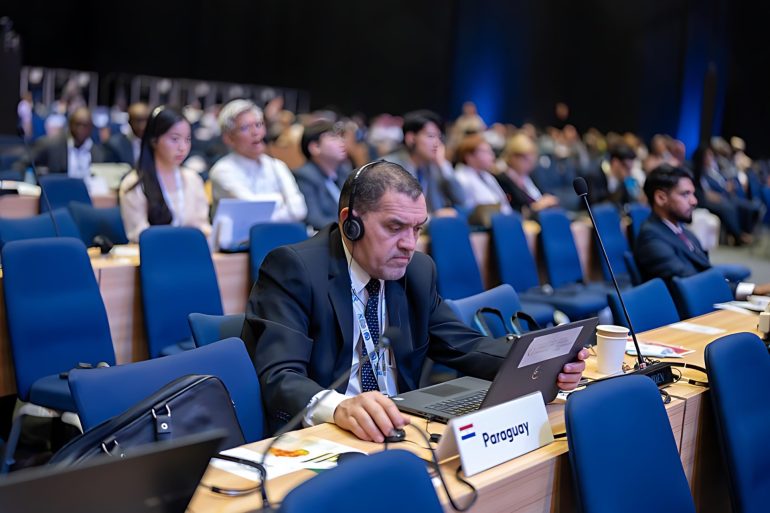Paraguay has achieved a historic milestone: the country has been elected during the to serve on the Postal Operations Council (Consejo de Explotación Postal, CEP) of the Universal Postal Union (UPU). This development provides new levers for Paraguay to influence global postal policy and yield tangible benefits for citizens and businesses alike.
As part of the 28th Universal Postal Congress held in Dubai, Paraguay’s national postal operator, DINACOPA (Dirección Nacional de Correos del Paraguay), obtained 84 votes in favour and secured its place among the 48 member countries of the council.
What does the Postal Operations Council do?
The CEP is a technical and operational body of the UPU tasked with shaping and modernising postal operations worldwide. It addresses issues such as operational, economic, and commercial frameworks for postal services, and issues recommendations on technological, regulatory and procedural norms among member states.
The Postal Operations Council is one of the bodies elected to carry out the Congress’s decisions between sessions, making it central to ongoing postal governance.
By participating directly in the Postal Operations Council via the Universal Postal Congress, Paraguay now holds a seat at the technical table where global postal rules are shaped.
Visibility and national prestige
This is the first time Paraguay has obtained a seat in the Postal Operations Council, reflecting increased international recognition of the country’s postal commitment. It reinforces Paraguay’s standing in multilateral organisations and opens doors for future leadership roles in the Universal Postal Congress and UPU governance.
By being active in the CEP, DINACOPA can deepen technical cooperation with other postal administrations, share best practices, gain training, and improve its institutional capacity. These enhancements benefit everyday users of postal services, from individuals sending letters abroad to entrepreneurs exporting goods.
Modernising services and boosting efficiency
With a representation in the Postal Operations Council, Paraguay will have stronger voice and vote in discussions about new postal technologies, e-commerce regulation, standards, and cross-border delivery practices. This gives the national operator a better platform to advocate for reforms that reduce delays, improve tracking, and lower costs in international postal traffic.
Often, the terms under which international mail is handled (terminal dues, service agreements, exchange rules) favour large postal operators in wealthier nations. Through direct participation at the Postal Operations Council, Paraguay can push for fairer rules that reflect its costs and context, mitigating disadvantages faced by Paraguayan exporters, small businesses and consumers in cross-border commerce.
Strategic focus
Holding a seat is one thing; wielding influence is another. To capitalise on this opportunity, Paraguay must:
- Equip DINACOPA with technical resources and skilled staff to effectively engage in CEP discussions.
- Prepare data and proposals on national postal operations (costs, volumes, cross-border flows) to negotiate from a knowledgeable position.
- Build alliances with other developing countries within the Universal Postal Congress to promote shared reforms favourable to similar postal realities.
- Monitor and engage in rule-making processes (e.g. terminal dues, e-commerce postal regulations) continuously, not only during Congress sessions.
Paraguay’s election to the Postal Operations Council marks a turning point in how the nation can shape global postal norms rather than merely comply with them. As this role is leveraged over coming years, Paraguayan citizens and businesses stand to benefit from more efficient postal services, fairer cross-border costs, and deeper integration into the international postal system.
This growing involvement also reflects DINACOPA’s broader efforts to modernise and remain relevant. For example, in 2024 the institution issued a new Christmas stamp, a small but symbolic step that illustrates its intention to become increasingly active and engaged in the postal sphere.


